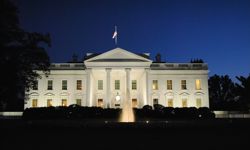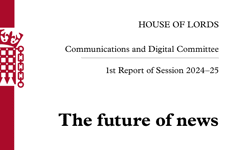
‘Good, but…’ was the general reaction of press bodies to the release of Julian Assange this week. Here are some of the comments:
• “Julian Assange is free, and it seems, will stay that way. For the United States, expending such energy attempting to incarcerate the Wikileaks founder for the rest of his life has exposed a bullying nature, damaged its reputation as a haven for free speech, and has shone an unforgiving light on its military operations. This agreement creates the opportunity to repair that damage.
…
“For the charges to be completely dropped would have been better, but for now the plea deal ends an unbecoming performance that risked irreparable damage to media freedom. Whether you have been cheering for Assange from the outset, or still have questions in your mind about his methods and personal actions, if you care about free expression, this is a time to celebrate.” Tim Dawson, Deputy General Secretary, International Federation of Journalists
• “We are hugely relieved that Julian Assange is finally free - a long overdue victory for journalism and press freedom. He never should have spent a single day deprived of his liberty for publishing information in the public interest. Nothing can undo the past 13 years, but it is never too late to do the right thing, and we welcome this move by the US government. We will continue to campaign in support of journalists around the world who find themselves targeted for national security reporting, and for reform of the US Espionage Act, so that it can never again be used to target journalistic activity.” Rebecca Vincent, RSF Director of Campaigns
• “The plea deal sets a potentially dangerous precedent and, without further assurances, risks posing a significant threat to journalists and whistleblowers who obtain or disclose public interest information.
“National security legislation is frequently misused or misinterpreted to silence journalism and criminalise journalists; for media organisations, it can be a regular minefield navigating the many provisions such legislation contains. Furthermore, the sweeping application of these types of laws – originally designed to combat terrorism, protect national interests, and ensure public safety – leaves them open to shocking abuse.
“We call on the US and other governments to make firm assurances that public interest journalism will be recognised and protected as such and, going forward, journalists and the act of doing journalism will not be targeted as a threat to national security.” Statement from WAN-IFRA
• “The release of Julian Assange, after a hard-fought campaign by journalists worldwide, signifies the final stages of an ordeal he has faced for several years. This plea deal is a hopeful beacon for Assange and his family in a case the NUJ has condemned from the start, for its wide-ranging ramifications for journalists exposing truths through their reporting.
“The targeting and persecution of journalists in this way is one that underscores the need to defend journalism and the methods used daily, including when cultivating a source.
“Collectively, we must do all that is necessary to protect press freedom and continue to resist efforts threatening the safety of journalists.” Michelle Stanistreet, general secretary, NUJ
You can catch James Evelegh’s regular column in the InPubWeekly newsletter, which you can register to receive here.












